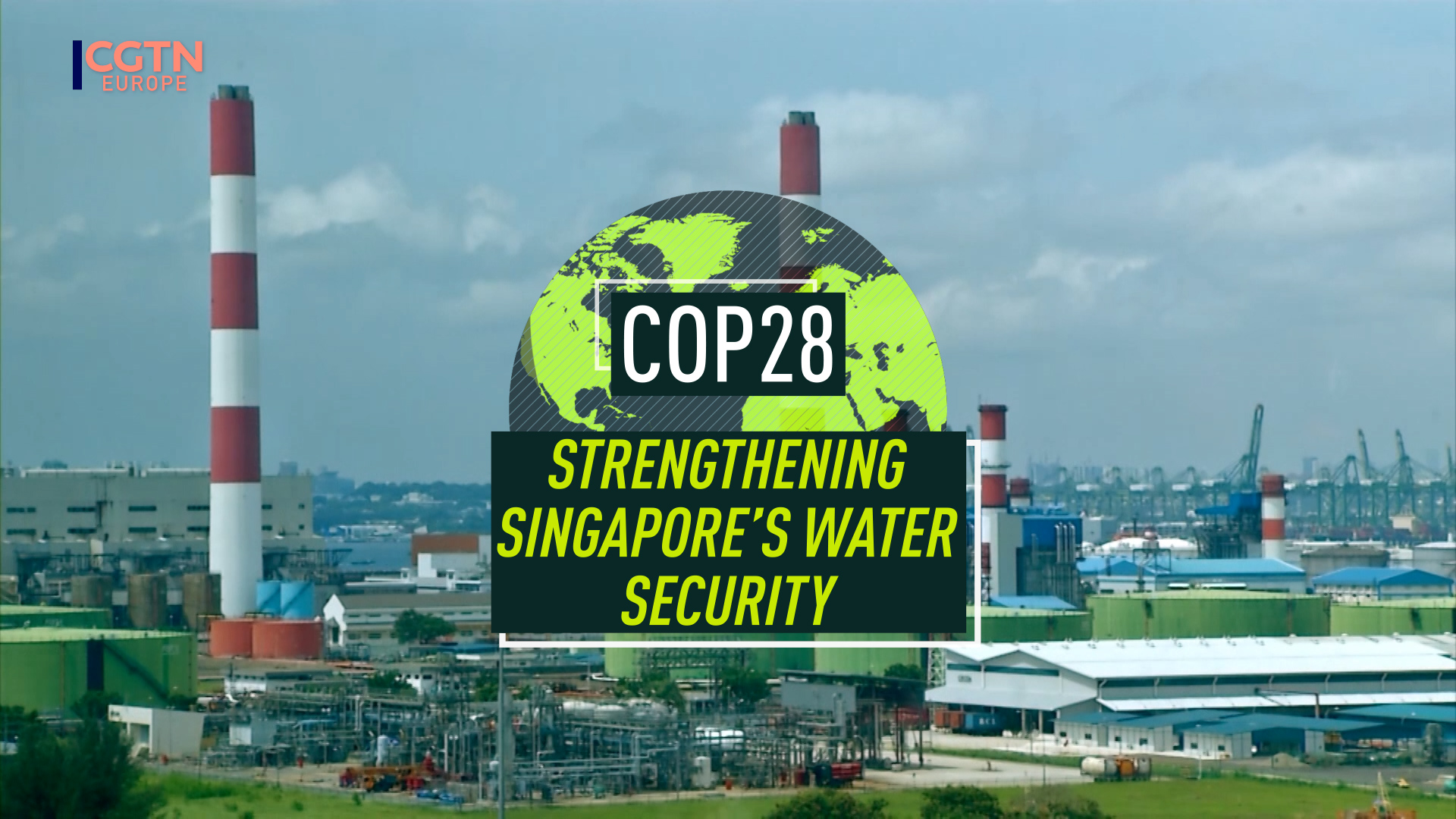02:38

Singapore faces many challenges to its water security and is known for carrying out one of the most ambitious efforts globally to improve water supply. Due to limited land area and natural resources, the country has minimal storage facilities and relies on regular rainfall to sustain its freshwater supply.
As Singapore's economy grows and the impact of climate change increases, more pressure will be put on the city state's water supplies. With industries using more than half of its water, both public and private industry players are racing to find sustainable solutions.
Industrial wastewater is highly hazardous. Conventional treatment methods are energy-intensive and costly. Moreover, they rely heavily on chemicals which further generate secondary waste. A Singapore start-up has come up with a solution without using chemicals. Consuming small amounts of electricity, this cost-effective technology can remove up to 95 per cent of contaminants in normal industrial wastewater.

Singapore hopes its two recycling taps will meet 85 per cent of its water demand by 2060. /CGTN Europe
Singapore hopes its two recycling taps will meet 85 per cent of its water demand by 2060. /CGTN Europe
Singapore's Hydroleap, a green wastewater technology company, wants to extend its expertise and solutions to various industries, helping them significantly reduce their water and carbon footprints through efficient and eco-friendly wastewater treatment.
Hydroleap is determined to take its electrochemical technologies from laboratory settings to practical applications and one of its major initiatives is venturing into a new vertical – palm oil effluent treatment. The Singapore-based start-up's electrochemical techniques have proven highly effective in treating industrial wastewater, enabling a reduction of up to 95 per cent in pollutants it claims.

Climate change has resulted in unpredictable weather conditions that are once again straining Singapore's water resources. /CGTN Europe
Climate change has resulted in unpredictable weather conditions that are once again straining Singapore's water resources. /CGTN Europe
Mohammad Sherafatmand, founder and CEO of Hydroleap, said: "Data centers use a lot of water and discharge a lot of water and they use the tap water, literally the cleanest water that is available wherever they are. So we did the pilot with one of the blue-chip companies and over one year, we showed them that when you utilize Hydroleap's system, you will be able to reduce the water discharges by nearly 70 to 80 per cent and also reduce your chemicals by nearly 80 per cent."
READ MORE
Germany issues emergency budget
Canary Islands on the frontline of climate change
The battles facing desperate olive farmers
Hydroleap is part of a large ecosystem of over 200 companies, 25 research centers and multiple government agencies that has transformed Singapore from a water-stressed nation to one of the world's leading hydro hubs.
Built across the 350-meter wide Marina Channel to keep out seawater, prevent flooding and increase freshwater reserves in the heart of the city, Marina Barrage is a symbol of Singapore's water policy. The Four National Taps, including local catchment, desalinated water, imported water and NEWater, has significantly increased the city state's water security. But climate change has resulted in unpredictable weather conditions that are once again straining its water resources.

Hydroleap is determined to take its electrochemical technologies from laboratory settings to practical applications. /Hydroleap
Hydroleap is determined to take its electrochemical technologies from laboratory settings to practical applications. /Hydroleap
Shane Snyder, executive director of the Nanyang Environment & Water Research Institute (NEWRI), said: "A lot of countries can learn what Singapore has done to try to compartmentalize to some extent the industrial effluents from the domestic because the domestic comes from all of us, so it is relatively clean and relatively consistent. There's a lot of forward-thinking of how perhaps the effluent from one company could be the source water of another and how we best attach these things into a new form of water system so that they can be recycling their own water for the volume they need."
Singapore hopes the two recycling taps - NEWater and desalinated water - will meet 85 per cent of its water demand by 2060. The national water agency PUB aims to achieve this goal in alignment with Singapore's larger net-zero target of 2050.
Subscribe to Storyboard: A weekly newsletter bringing you the best of CGTN every Friday